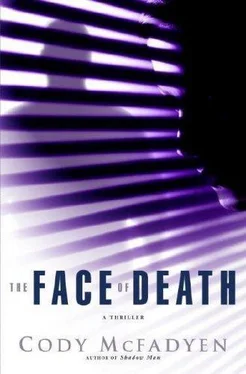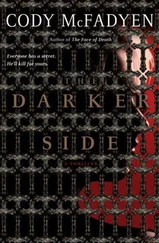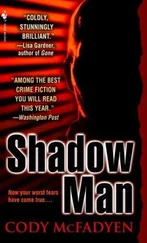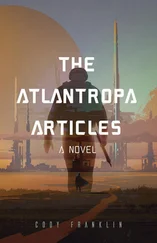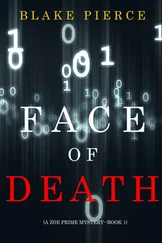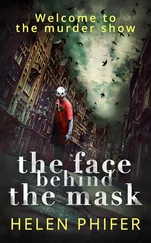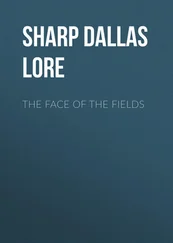Desiree sat down next to her on the couch but was careful not to do anything else. Sarah was grateful. She wasn't ready for that yet, to surrender herself to the arms of an adult again. It was nice to have Desiree there, though. Pumpkin displayed his own empathy; he'd stopped demanding to be petted and was licking Sarah's knee. Desiree didn't speak until Sarah was done crying.
"So," she said, "you met Pumpkin. Do you want to see your room?"
Sarah nodded and managed a smile. "Yes, please. I'm tired."
You know one of the things I've realized? I've realized that a dog really is man's (or woman's) best friend.
As long as you feed them and love them, dogs love you back. They won't steal from you or beat you or betray you. They're honest. What you see on the surface is what you get underneath. Not like people.
"We're here," Alan says, pulling me away from my reading. I fold the pages in half and replace them in my purse with great reluctance. Sarah's experiences had awakened in her a taste for violence. But she was still guilty of hope.
Was that how it had been for him? A slow erosion of the soul? At what point did the taste become a hunger?
Did any part of him still hope?
37
TERRY GIBBS, THE LAWYER, HAS AN OFFICE IN MOORPARK. I AMfamiliar with Moorpark by accident; Callie's daughter and grandson live here.
The secret of Callie's daughter had haunted her for years. A killer had discovered this, and had attempted to exploit this knowledge to his advantage. The result? Callie and I, breaking the sound barrier, pounding on her daughter's door with our guns drawn, expecting the worst. Marilyn was fine, the killer is dead, and Callie now has a relationship instead of a regret. This satisfies both my sense of justice and my sense of irony, a self-satisfaction that's probably as ugly as it is gratifying. I feel the killer's death deserves my gloating more than my guilt. Moorpark is an up-and-comer, located in Ventura County, west of Los Angeles. In many ways it's California of old; if you drive down the 118 freeway to get there, you pass through miles of unpopulated hills and mini-mountains. Sometimes there are even cows. Moorpark used to be a rural town. Now it is a growing suburban hub, middle to upper-middle class, with some of the fastest-appreciating homes in Southern California.
"Give it twenty years and it'll be an urban-sprawl shit hole," Alan comments, gazing out the window, providing a cynical future-echo to my thoughts.
"Maybe not," I offer. "Simi Valley, the town next door, is still very nice."
Alan shrugs, not believing a word of it. We turn off the 118 freeway onto Los Angeles Avenue.
"Up here on the right," Alan says. "In the business park."
We exit the street into a large collection of four-to five-story office buildings, as new as the rest of Moorpark with glass that gleams in the sunshine.
"Pull up over there." Alan points.
As we park the car, my cell phone rings.
"Is that Smoky Barrett?" a perky female voice asks.
"Yes. Who's this?"
"This is Kirby. Kirby Mitchell."
"Sorry--do I know you?"
"Tommy must not have told you my name. Silly guy. You asked for a referral from him? For personal protection? That's me."
I realize that the cheerful voice belongs to my "loyal and lethal"
bodyguard and possible ex-assassin.
"Oh, right. Sorry," I fumble. "Tommy didn't give me your name."
Kirby chuckles. It's a chuckle that matches the rest of her voice: light, a little melodic. The sound of someone without a care in the world, someone who'd been happy to wake up that morning, who hadn't needed any coffee when she woke up, who probably went on a five-mile jog straight out of bed, smiling the whole way. I'm considering not liking her, but that's the problem with cheerful people. You feel obligated to give them a chance. I'm also intrigued. The idea of a Pollyanna-assassin appeals to the perverse side of my nature.
"Well," she says, a juggernaut of good cheer, "no harm done. Tommy's great, but he's a guy, and guys forget the details sometimes, it's a man thing, I think. Tommy's better than most, and a hunk to boot, so let's forgive him, okay?"
"Sure," I reply, bemused.
"So, when and where would you like to meet?"
I glance at my watch, thinking. "Can you meet me in the reception of the FBI building at five-thirty?"
"FBI building, huh? Coolness. I guess I'd better leave all my guns in the car." A melodious laugh, somehow amusing and disturbing at the same time, given the context. "I'll see you at five-thirty, then. Bye!"
"Bye," I murmur. She hangs up.
"Who was that?" Alan asks.
I stare at him for a moment. Shrug. "Possible bodyguard for Sarah. I think she's going to be a hoot."
Coolness.
Terry Gibbs ushers us into his office with a smile. It's a small office, with his desk in the front, and file cabinets along a far wall. Everything has a used but sturdy look to it.
I take stock of the lawyer as he motions for us to sit down in the two padded chairs facing his desk.
Gibbs is an interesting mix of a person. It's as though he couldn't decide who he wanted to be. He's a tall man. He's bald, but he has a moustache and a beard. He has the broad shoulders and athletic moves of a fit man, but he smells of cigarettes. He wears glasses with thick lenses, which highlight intense, almost beautiful blue eyes. He's wearing a suit without a tie, and the suit looks expensive and tailored, a mismatch with the office furniture.
"I can see what you're thinking in your eyes, Agent Barrett," he says, smiling. He has a nice voice, smooth and flowing, not too deep or too high. The perfect voice for a lawyer. "You're trying to match up the thousand-dollar suit and the crappy office."
"Maybe," I admit.
He smiles. "I'm a one-man band. I don't make the big bucks, but I do okay. It forces compromise: flashy office or flashy suit? I decided on the flashy suit. A client can forgive a messy office. They'll never forgive a lawyer in a cheap suit."
"Kind of like us," Alan says. "You can show them the badge, but all they really want to know is if you got the gun."
Gibbs nods, appreciative. "Exactly." He leans forward, resting his arms on the desk, hands clasped, serious. "I want you to know, Agent Barrett, I'm not being intentionally uncooperative on the Langstrom trust. I'm bound, ethically and legally, by the rules of the bar."
I nod. "I understand, Mr. Gibbs. I assume that you have no problem with us getting a subpoena?"
"None whatsoever so long as it legally sets aside my obligations to comply with the rules of privilege."
"What can you tell us?"
He leans back in the chair, looking off at a space over our heads, thinking.
"The client approached me approximately ten years ago, wanting to set up a trust to benefit Sarah Langstrom."
"Man or woman?" I ask.
"I'm sorry. I can't say."
I frown. "Why?"
"Confidentiality. The client demanded absolute confidentiality in every way. Everything is in my name for that reason. I have power of attorney, I administer the trust, and my retainer is paid from the trust."
"Did you consider that someone wanting that much confidentiality might not be up to anything good?" Alan asks. Gibbs gives Alan a sharp look. "Of course I did. I made some inquiries. At the other end of those inquiries I found a child orphaned by a murder-suicide. If Sarah Langstrom's parents had been killed by an unknown intruder, I would have refused to take on the client. As it was, with the mother ruled the murderer, I couldn't think of a reason to refuse."
"We're looking into the possibility that it wasn't a murdersuicide," I say, watching his reaction. "It may have been staged to appear that way."
Gibbs closes his eyes for a moment and rubs his forehead. He seems distressed. "That's terrible, if true." He sighs and opens his eyes.
Читать дальше
